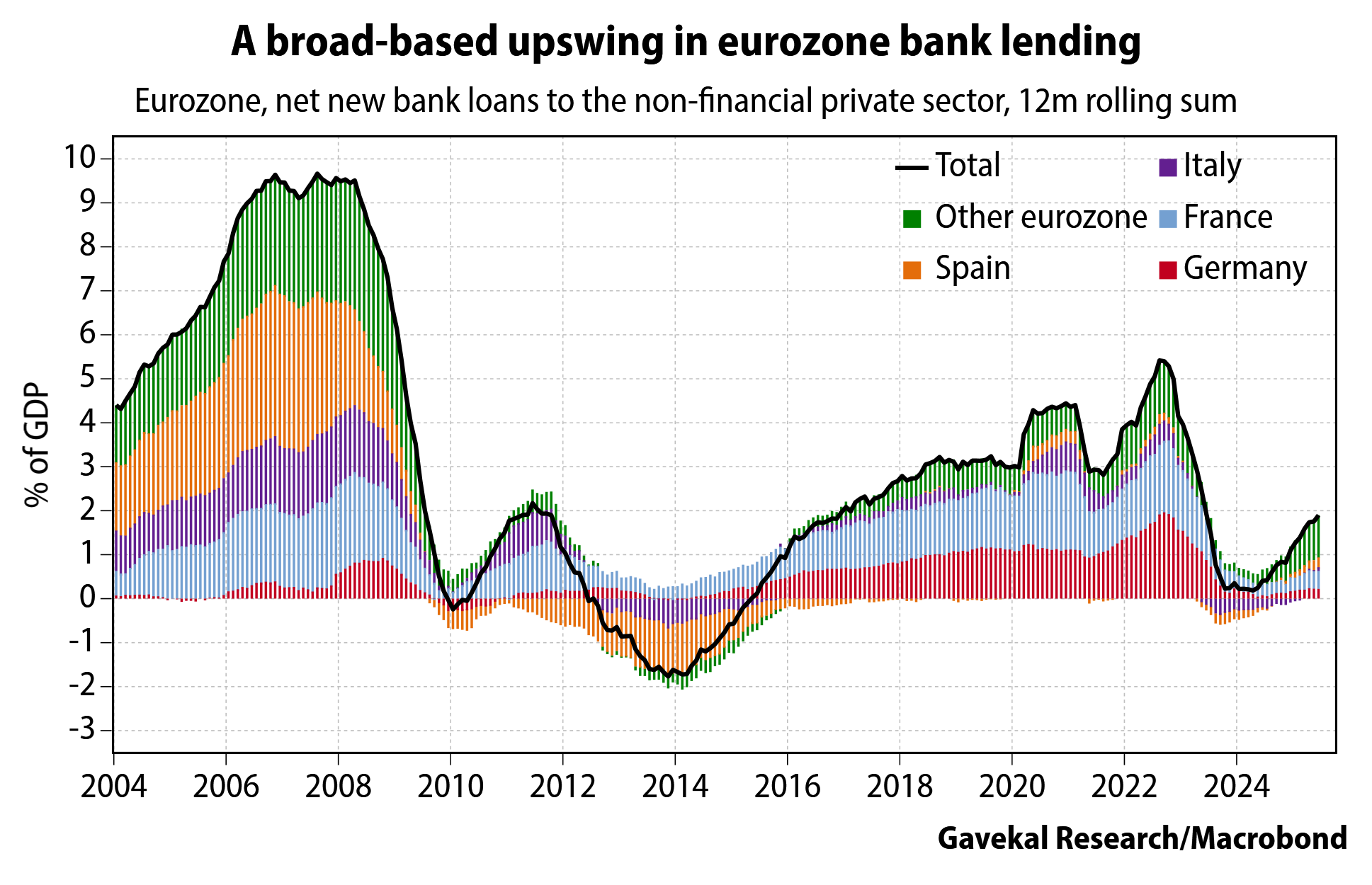Most recent

Gavekal Research

What Could Restart Dollar Strength?

Gavekal Research

One Country, Two Currencies
Gavekal Research

Stagflation Or Reflation?
Gavekal Research

China On The Nile
Gavekal Dragonomics






More research






Gavekal Research

Of Gold And Gold Miners
Checking The Boxes
Our short take on the latest news
US existing home sales fell -2.7% MoM to 3.93mn in Jun, down from 1% in May
Below expected -0.7%
Affordability issues continue to weigh down housing sector activity
Eurozone consumer confidence indes rose to -14.7 in Jul, up from -15.3 in Jun
Above expected -15
Expect further improvement as economic worries dissipate amid the cyclical recovery
South Korea GDP rose 0.6% QoQ in 2Q, up from -0.2% in 1Q
Above expected 0.4%; YoY, GDP rose 0.5% in 2Q, up from 0% in 1Q
Stimulus measures propping up recovery for now; downside risk from trade remains high
Singapore CPI rose 0.8% YoY in Jun, the same pace as in May
Below expected 0.9%; core CPI rose 0.6% YoY in Jun, the same pace as in May
Subdued inflation risk amid weak growth outlook reinforces case for MAS easing

- Paris
- Singapore
- São Paulo
- Hong Kong
- Riyadh
Chart of the Week

The global view




Book list
Gavekal Research
Recommended Reading
Gavekal Research





